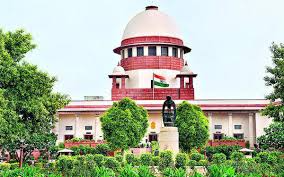Delhi High Court has upheld the arrest of Chief Minister Arvind Kejriwal by the Enforcement Directorate (ED) in connection with a Liquor Policy case. Here’s a breakdown of the key points from the court’s decision:

Read more: Saudi Arabia’s Rumy Alqahtani Wins Miss Universe 2024
- Material Collected by ED: The evidence gathered by the ED suggests that Arvind Kejriwal was involved in a conspiracy and actively participated in the use and concealment of proceeds of crime.
- No Specific Privilege: The court emphasized that no special privilege exists for individuals, including Chief Ministers, under the law.
- Dismissal of Political Motive: Kejriwal had alleged that his arrest was politically motivated. However, the court dismissed this claim, stating that judges are obligated to adhere to legal principles, not political considerations.
- Timing of Arrest: The court rejected the argument that the timing of Kejriwal’s arrest was determined by the ED. It highlighted that Kejriwal, being aware of Lok Sabha election dates, could not claim ignorance about when the elections would be held.
- Judicial Independence: The court underscored the importance of judicial independence, asserting that judgments are based on constitutional morality, not political morality.
- Compliance with Law: The material presented to the court indicated that the ED had followed legal procedures in conducting its investigation. Additionally, the trial court’s order was based on substantial evidence, including statements from hawala dealers and an AAP candidate.
- Dismissal of Kejriwal’s Plea: In light of the evidence and legal considerations, the Delhi High Court dismissed Arvind Kejriwal’s plea challenging his arrest by the ED and the trial court’s decision to remand him to ED custody.
The court’s decision reaffirms the principle that individuals, regardless of their position, are subject to the law. It also highlights the judiciary’s commitment to upholding constitutional principles and ensuring the fair application of justice.
